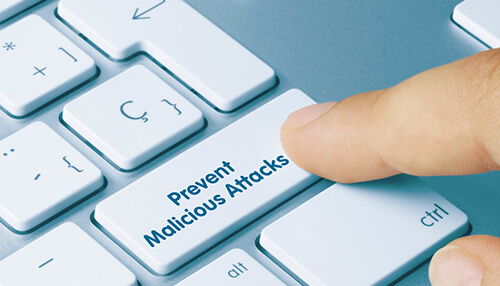Technological advancement has played a significant role in revolutionizing cyberattacks in the modern era. Attackers are now utilizing advanced solutions such as artificial intelligence, automation, and more to improve the complexity and effectiveness of their cyberattacks. Hence, cyberattacks can now easily infiltrate your production line, leading to downtime and affecting your competitive advantage.
For this reason, businesses can no longer afford to sit and wait around for an attack to hit them. Instead, most firms are now safeguarding their production line by anticipating and preparing for future cyberattacks.
The following blog outlines what you need to know about proactive threat detection. You’ll learn what it is, how it can benefit your business, and more.
What Is Proactive Threat Detection?
Proactivity means anticipating future changes or issues and preparing to implement the appropriate measures. In the context of cybersecurity, proactivity implies just the same. Hence, proactive threat detection is the strategy you need to employ before an attack occurs. In most cases, a business might not be well-prepared for potential attacks, resulting in loss of money and critical data. However, proactive cybersecurity will prevent the attack from happening in the first place instead of addressing an attack that has already occurred. It accomplishes this by monitoring your network 24/7 and detecting potential issues before they escalate.
Essentially, proactive threat detection includes all the processes carried out regularly in an organization to prevent risk.
Another security measure you might be familiar with is reactive threat detection. Reactive threat detection is the exact opposite of proactive cybersecurity. It entails implementing security measures such as a firewall, password protection, and more to defend against known attacks from compromising your security architecture. Also, the measures can help you track down the perpetrators once an attack has already occurred.
In contrast, proactive utilizes measures such as threat hunting, penetration testing, proper training, and more to prevent an attack from happening in the first place. Over the years, there have been many service providers you can choose for your proactive threat detection services, which can make it hard to choose the ideal vendor. However, you can consider visiting Castra or any other reputable local vendor. It’s advisable, however, to conduct enough background checks to gauge the vendor’s reputation and ensure it meets your needs and expectations.
Benefits Of Proactive Threat Detection
The following are the benefits of investing in proactive threat detection. They include:
1. Boost Customer Trust
One of the challenges you might face as a business owner is gaining customer trust. However, a customer who trusts your brand will purchase from it again and also refer your enterprise to friends and relatives, increasing sales. You can gain customer trust by building an honest brand image and developing positive relationships with your customers.
However, it’s vital to understand that any data breach might harm your public image. Fortunately, proactive security measures can prevent the threat from occurring, protecting your brand image. Additionally, protecting sensitive customer information from cyberattacks shows customers that you care about them, helping to boost trust.
2. Ensure Compliance
This is another reason why you should invest in proactive threat detection. Some rules surround almost every aspect of businesses, and cybersecurity is no different. Complying with the set guidelines and standards can significantly improve your overall security and keep you from non-compliance fines or penalties.
However, it can be challenging to comply with regulations if you don’t have deeper insights into your organization’s risks. Fortunately, proactive threat detection makes it easier for you to conduct an in-depth audit and understand potential risks. When you’re already going to these lengths to understand the state of your security architecture, you’ll be able to comply with the set rules in the process. You can also integrate advanced solutions such as automation and artificial intelligence to ensure you’re always up-to-date with ever-changing guidelines.
3. Reduce Clean-Up Costs
Any data breach may cost a business a considerable amount of money. It may affect your saving margin and disrupt core business, such as innovation. Luckily, investing in proactive cybersecurity can help reduce clean-up costs.
The security measure allows you to identify vulnerabilities and implement the right actions to prevent the attack from occurring. Also, proper training ensures compliance, which saves you from fines, settlements, and other related issues. However, before implementing these security measures, ensure you’re equipped with the right skills and knowledge, saving you from losing your hard-earned bucks.
Bottom Line
As discussed above, any data breach can affect your competitive advantage, leading to reduced revenue. For this reason, businesses need to implement proactive measures to prevent any attack from occurring. Conduct extensive research to ensure you identify the ideal proactive threat detection measure for your business.



